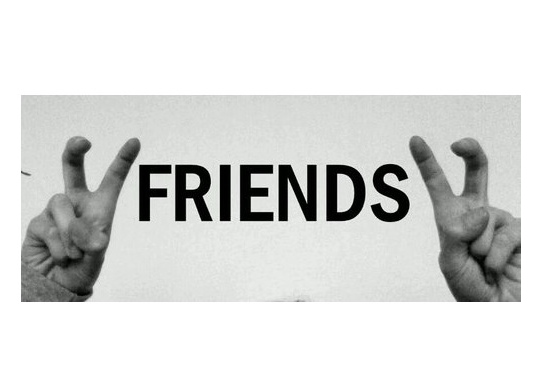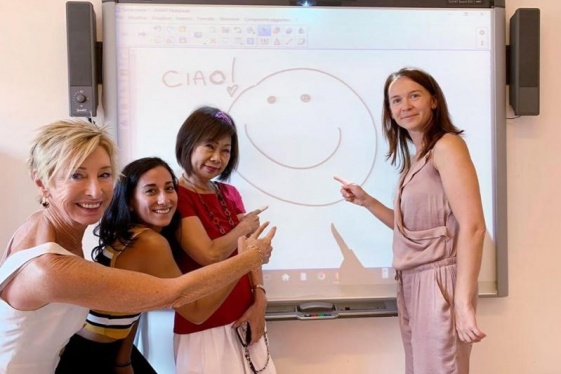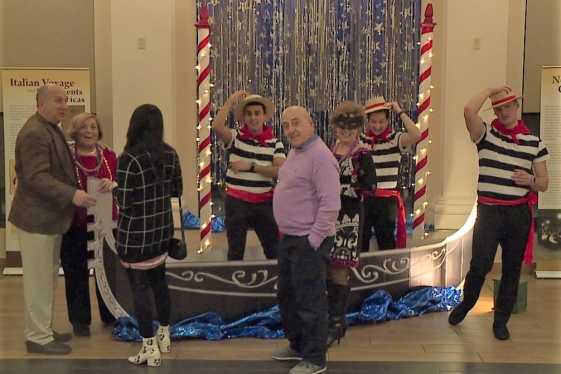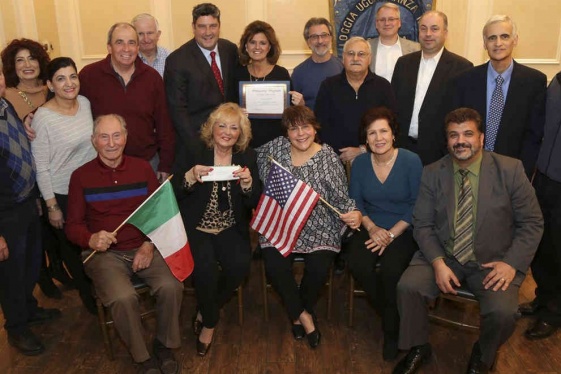

Languages. Sometimes they are so tricky. Sometimes you think you got it, you can get away with not knowing what the correct word is and just make it up by deducing from your native language, but then you meet them. They are the worst. They are responsible for many gaffes and every language has them. They are the false friends.
Italian is no exception. You think you can just trust the fact that the word that sounds just like the English one has the same meaning in Italian, but no, don’t be “delusional” or you will end up saying some kind of silliness, and you will be “deluso,” or let down, instead. How do you detect them? Well, once you’ve made the mistake you’ll know by the confused look of your interlocutor.
For instance, “attualmente” does not mean “actually,” and “eventualmente” does not mean “eventually,” but actually “eventualmente” does mean “actually.” The same logic applies to “sensibile” which does not mean “sensible,” but “sensitive,” while “sensitivo” is simply someone you’ll go to if you want to talk to your beloved great-great-grandma to know where she hid all the money. “Caldo” is not “cold,” but “hot,” a “camera” is a “bedroom” not the device you use to take pictures. So, when an Italian tells you his “camera è calda” it does not mean that their device somehow ended up spending the night in the fridge, but their room is hot.
“Attendere” e “pretendere” mean “to wait” and “to expect,” that means that you “attendi” an answer and not a university, and you can “pretendere” an explanation, not play make-belief. An “addizione” is not an “addiction,” but a “sum,” and “affluent” is not a rich man, but it’s a tributary river. And again, a “fattoria” is not a “factory,” but a “farm.” And the list continues!
Your “parenti” are not only your mom and dad, but also your aunts, uncles, and cousins, and if you are “educato” you simply have manners, not a degree. A “stampa” is a print, not a “stamp,” and if you want to go to a “libreria” you better carry money because you can only buy books, not borrow them, that would be considered stealing there. In a “bar” you would usually order a coffee or a cappuccino, and you will not need a “patente,” which is not a “patent,” but your driver’s license to get in there. If you live in “estate” you are simply enjoining the warm season, not a big house, and you can be on “vacanza” which will be exactly the opposite of the vacancy you are applying for. Something that “makes sense” in English, actually, “fa senso” would mean “to disgust” in Italian, and something that is “morbido” or soft in Italian is “morbid” in English.
Be mindful though! Some false friends are even meaner than others. Stay away from guessing “excited” and “pollution,” or “preservatives” in Italian based on the English words! Some really awkward moments will be waiting for you. All those words look like they are your friends, but they are there to betray you.
If life teaches you that it’s better safe than sorry or as the Italians would say “fidarsi è bene, ma non fidarsi è meglio,” languages teach you that the ones to least trust are your friends. So, make sure to put “crema” on your skin and “panna” in your food, not vice versa.
You may be interested
-
Italian world language teacher 2015-2016
FRAMINGHAM PUBLIC SCHOOLS - JOB DESCRIPTION TITLE: World Language Teacher - Italian...
-
'Italy Stay Strong': What The Coronavirus Eme...
On the northern coast of Sicily, looking out toward the magnificent Aeolian Islands, Milaz...
-
‘Carnivale’ doubles as event to persuade YSU...
Lent begins next Wednesday but the Italian community of Youngstown celebrated their own Ma...
-
‘Il Canto degli Italiani’: What the Italian n...
The Italian football team and its fans are known for belting out rousing renditions of the...
-
‘In Other Words’ review: Jhumpa Lahiri’s love...
By Howard Norman Jhumpa Lahiri lived with her family in Rome in 2012. Though she...
-
‘Let’s Choose Three Words’: the Project dedic...
‘Let’s Choose Three Words’ is a new educational project promoted by the Ministry of Foreig...
-
‘Living in Rome’ talk accompanies Italian din...
An Italian Dinner and Talk on "Living in Rome: Duties, Distractions and Delights" will be...
-
‘Sons’ save Primavera program
A community program providing supplemental education in a foreign language to community ch...










